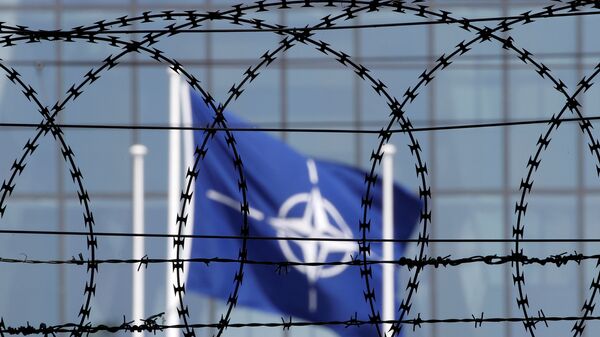In an interview with the Spanish newspaper El Pais on Tuesday, NATO Secretary General Jens Stoltenberg warned that the EU should not distance itself from NATO given the bloc’s current defence capability.
“What I can say today is that NATO is strong, agile and vital to our [EU] security. The European bloc cannot replace the trans-Atlantic alliance. The EU is important, but it cannot defend Europe,” Stoltenberg said when asked to comment on French President Emmanuel Macron’s recent remarks about the alliance’s “brain death.”
Calling the EU and NATO “two sides of the same coin,” Stoltenberg urged the sides to coexist “together” in a world which he said faces “so many challenges and threats.”
“Any attempt to distance Europe from North America will not only weaken NATO, but also divide Europe. The EU is a great instrument to generate peace, stability and prosperity, but it cannot replace NATO”, he pointed out, touting it as “the most successful alliance in history.”
Stoltenberg concluded by referring to NATO’s efforts to “preserve peace and avoid conflicts for 70 years” and pledging that the alliance would “continue to do so for many more decades.”
French President Calls NATO ‘Brain Dead’ Alliance
His remarks came after French President Emmanuel Macron told The Economist earlier in November that NATO was allegedly experiencing "brain death" due to a lack of coordination and US unpredictability under President Donald Trump.
German Chancellor Angela Merkel was quick to respond by saying at the time that “the French president has found rather drastic words to express his views.”
“This is not how I see the state of cooperation at NATO,” she said, adding that “NATO remains a cornerstone of our security.”
She was echoed by Stoltenberg who rejected Macron’s remarks and urged the US and Europe to "work together more than we have done for decades”.
Macron Calls for Creation of European Army
In November 2018, Macron insisted that the EU should have a “real European army” independent of the United States and NATO to be able to defend itself from alleged threats emanating from Washington, Beijing and Moscow.
After the idea was endorsed by Merkel, Berlin and Paris agreed on creating a joint aircraft and combat system, inviting other European states to join the project.
President Trump, in turn, slammed Macron's push for forming a pan-European military as "very insulting”, arguing that NATO countries should first pay their fair share of the alliance.
The US President has repeatedly pressed NATO member states to meet their annual defence spending obligations in the alliance, even insisting that they raise their expenditures to 4 percent of GDP — instead of the existing target of 2 percent.



